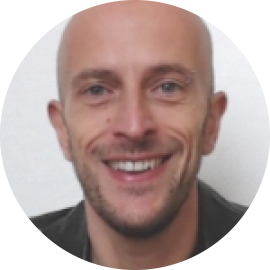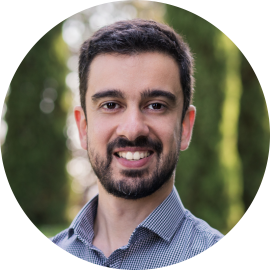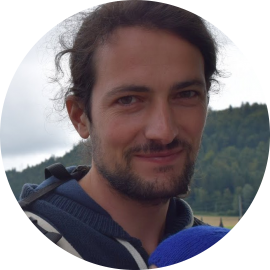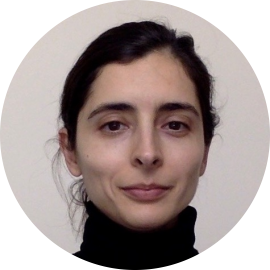On Tuesday January 31, 2023, the European Research Council announced the list of beneficiaries of ERC Consolidator Grants, a European funding scheme to develop ambitious, innovative research projects. The laureates include four scientists working at the Institut Pasteur.
The European Research Council (ERC) provides funding for scientific research in Europe by means of various grants. The aim is to attract the best international scientists and to encourage them to pursue their research in Europe.
On January 31, 2023, the ERC unveiled the list of the 321 recipients of its Consolidator Grants. The grants, aimed at mid-career researchers, are worth two to three million euros over a five-year period for the development of ambitious, innovative research projects. After three scientists working at the Institut Pasteur were recently selected as recipients of Synergy Grants and three more for Starting Grants, this time four scientists have been selected as laureates.
bAIes project (Integrative, AI-aided Inference of Protein Structure and Dynamics)
Winner: Massimiliano Bonomi, Head of the Integrative Structural Biology of Dynamic Systems group in the Structural Bioinformatics Unit and a CNRS research associate
Summary: Over the past two years, artificial intelligence has enabled us to predict protein structures with a precision comparable to experimental techniques. But AI has its limits. The bAIes project will develop a modeling approach combining AI-generated structural models, experimental data and molecular simulations performed by physicochemical models to precisely characterize the structure of proteins, especially their disordered regions, and their in situ dynamics.

"This is both a major milestone in my career and a huge honor," explains Massimiliano Bonomi. "The grant will enable me to strengthen my research team and also to acquire the IT resources we need to achieve our objectives."
IndexThePlanet project (Planetary-Scale Indexing of Sequencing Data)
Winner: Rayan Chikhi, Head of the Sequence Bioinformatics five-year group
Summary: The IndexThePlanet project will provide research capabilities for all existing public DNA and RNA sequencing data – a huge volume of data that is generally never reanalyzed. Major progress could be made if we could rapidly analyze petabytes (1015 bytes) of sequencing data, as was recently the case with the discovery of previously unknown coronaviruses and hundreds of thousands of species of RNA viruses.

"It's fantastic!" says Rayan Chikhi. "This ERC funding will drive the development of new methods, especially sequencing algorithms, which will be essential to perform large calculations effectively. The grant also confirms that my group, together with many other computer laboratories, has an important role to play in biology."
PrApEDoC project (Predicting Apoptosis Engagement Downstream of Caspases in vivo)
Winner: Romain Levayer, Head of the Cell Death and Epithelial Homeostasis Unit
Summary: Throughout our lives, we eliminate a huge number of cells via a biological phenomenon known as apoptosis. During apoptosis, caspases, enzymes that cleave other proteins, play a central role. However, recent research suggests that caspase activation does not necessarily lead to cell death. The aim of the PrApEDoC project is to identify the parameters that modulate apoptosis engagement following caspase activation. A detailed understanding of this new layer of cell death regulation could help pave the way for the elimination of cancer cells. (See also the role of microtubules in cell expulsion)

"We know that we can focus solely on science and research without worrying too much about where our funding is coming from," explains Romain Levayer. "This grant will enable us to buy essential microscopy equipment and potentially to recruit two or three people. The funding will also increase the visibility of our project, which will be crucial for the recruitment process."
DEXES project (Mechanisms of Dormancy, Activation and Sexual Conversion in Pre-erythrocytic Malaria Parasites)
Winner: Liliana Mancio Silva, Group Head in the Biology of Host-Parasite Interactions Unit and an Inserm research associate
Summary: Plasmodium vivax parasites, the agents responsible for malaria, can enter a "dormant" state in the human liver for weeks or even years, then wake and cause recurrent infections. These dormant parasites are an important target for eradicating malaria. The goal of the DEXES project is to understand and unravel the molecular mechanisms underpinning dormancy and also the transmission of parasites to mosquitoes. The project also aims to lay the foundations for the future development of new therapies targeting reservoirs for liver infection. (See also the creation of an in vivo model to maintain and examine the Plasmodium vivax parasite)

For Liliana Mancio Silva, this funding "will make it possible to expand the team and pursue an ambitious research program. The ERC Grant will be important in consolidating my stature as a scientist in my field and giving me the financial stability and freedom I need to concentrate on the science."
2022 ERC Consolidator Grants: France in 3rd place
Out of 2,222 proposals submitted to the European Research Council, 321 were selected for funding – a success rate of 14.5%. With 41 laureates, France is the third most represented host country among the beneficiaries, after Germany (62) and the United Kingdom (45).
Find out more about ERC Consolidator Grants
See the full list of the 321 recipients of 2022 ERC Consolidator Grants




